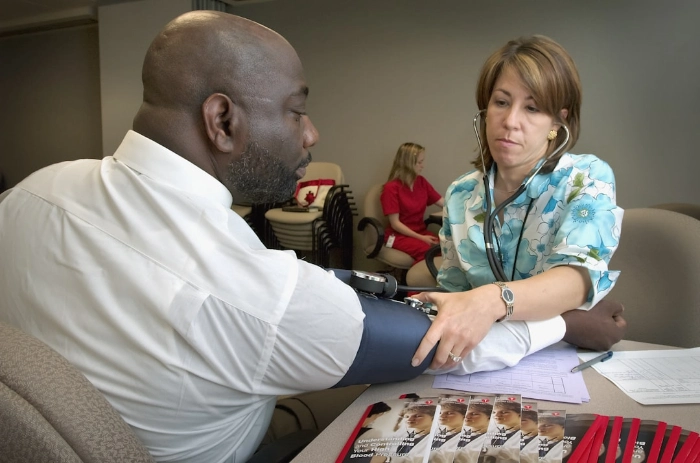Top 10 Natural Supplements Proven to Lower Blood Pressure

In the realm of cardiovascular health, maintaining optimal blood pressure levels is paramount. High blood pressure, or hypertension, can increase the risk of heart disease, stroke, and other serious health complications. While lifestyle changes such as exercise and dietary modifications play a crucial role in blood pressure management, certain natural supplements have also shown promise in lowering blood pressure levels. In this comprehensive guide, we'll explore the top 10 natural supplements backed by scientific research for their ability to support healthy blood pressure.
1. Magnesium
Magnesium plays a vital role in regulating blood pressure by relaxing blood vessels and improving blood flow. Studies have shown that magnesium supplementation can lead to modest reductions in both systolic and diastolic blood pressure levels.
2. Potassium
Potassium helps balance sodium levels in the body, which is essential for maintaining healthy blood pressure. Increasing potassium intake through supplements or potassium-rich foods like bananas, sweet potatoes, and leafy greens can help lower blood pressure levels.
3. Omega-3 Fatty Acids
Found abundantly in fatty fish like salmon, mackerel, and sardines, omega-3 fatty acids have been linked to lower blood pressure levels and reduced risk of cardiovascular disease. Fish oil supplements provide a convenient way to increase omega-3 intake for those who don't consume enough fish.
4. Coenzyme Q10 (CoQ10)
CoQ10 is a powerful antioxidant that supports cardiovascular health by improving blood vessel function and reducing oxidative stress. Supplementing with CoQ10 has been shown to lower both systolic and diastolic blood pressure levels, particularly in individuals with hypertension.
5. Garlic
Garlic contains compounds that promote vasodilation, or the widening of blood vessels, which can help lower blood pressure. Studies have demonstrated the blood pressure-lowering effects of garlic supplements, making them a valuable addition to a hypertension management plan.
6. Hibiscus
Hibiscus tea has long been used in traditional medicine to lower blood pressure, and scientific research supports its efficacy. Studies have shown that hibiscus supplementation can lead to significant reductions in both systolic and diastolic blood pressure levels.
7. Berberine
Derived from various plants, including goldenseal and barberry, berberine is a natural compound with potent antihypertensive properties. Research suggests that berberine supplementation can help lower blood pressure by relaxing blood vessels and improving insulin sensitivity.
8. L-Arginine
L-arginine is an amino acid that the body converts into nitric oxide, a molecule that dilates blood vessels and improves blood flow. Supplementing with L-arginine has been shown to lower blood pressure levels, particularly in individuals with hypertension or endothelial dysfunction.
9. Folic Acid (Vitamin B9)
Folic acid plays a crucial role in cardiovascular health, and studies have linked folic acid supplementation to reductions in blood pressure levels. As an essential nutrient, folic acid works synergistically with other B vitamins to support heart health.
10. Cocoa Flavanols
Dark chocolate and cocoa products rich in flavanols have been associated with lower blood pressure levels and improved endothelial function. Consuming cocoa flavanol supplements or incorporating cocoa-rich foods into your diet can offer blood pressure-lowering benefits.
Additional Tips for Blood Pressure Management
In addition to incorporating natural supplements into your routine, there are several lifestyle factors to consider that can further support healthy blood pressure levels.
1. Mindful Eating: Focus on a balanced diet rich in fruits, vegetables, whole grains, lean proteins, and healthy fats. Limiting sodium, processed foods, and excessive alcohol intake can also help maintain optimal blood pressure.
2. Regular Exercise: Engage in regular physical activity, such as brisk walking, swimming, or cycling, for at least 30 minutes most days of the week. Exercise not only helps lower blood pressure but also improves overall cardiovascular health and promotes stress relief.
3. Stress Management: Practice stress-reducing techniques like deep breathing, meditation, yoga, or spending time in nature. Chronic stress can elevate blood pressure, so finding healthy ways to manage stress is crucial for heart health.
4. Monitor Your Blood Pressure: Regularly check your blood pressure at home or during doctor visits to track changes and ensure you're staying within a healthy range. Monitoring allows for early detection of any potential issues and enables adjustments to your lifestyle or treatment plan as needed.
Conclusion: Empowering Your Heart Health Naturally
While natural supplements can complement a healthy lifestyle and support blood pressure management, it's essential to approach supplementation with caution and consult with a healthcare professional, especially if you have underlying health conditions or are taking medications. Incorporating these top 10 natural supplements into your routine, along with regular exercise, a balanced diet, and stress management, can help empower your heart health naturally and reduce the risk of hypertension-related complications.
Remember, maintaining optimal blood pressure levels is a journey, and consistency is key. By prioritizing your cardiovascular health and making informed choices, you can take proactive steps towards a healthier heart and a vibrant life.
Disclaimer
This blog post is for informational purposes only and is not intended as medical advice. It is essential to consult with a healthcare professional before starting any new supplement regimen, especially if you have underlying health conditions, are pregnant or breastfeeding, or are taking medications. Natural supplements may interact with medications or have adverse effects in certain individuals. Always follow dosage recommendations and seek guidance from a qualified healthcare provider to ensure safe and effective supplementation for your specific health needs.
